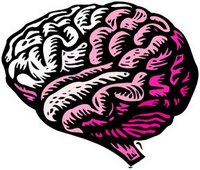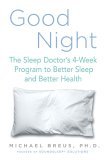Sleep Deprivation Causes Emotional Instability
Anyone who has experienced sleep deprivation knows the impact that it can have on your mind and body. Now researchers from UC Berkeley and Harvard Medical School have found a neural link between lack of sleep and emotional instability.
Using brain imaging in the first neural investigation into what happens to the emotional brain without sleep, results suggest that:
* a good night’s rest can regulate our mood and help us cope with the next day’s emotional challenges
* sleep deprivation excessively boosts the part of the brain most closely connected to depression, anxiety and other psychiatric disorders
 “It’s almost as though, without sleep, the brain had reverted back to more primitive patterns of activity, in that it was unable to put emotional experiences into context and produce controlled, appropriate responses,” said Matthew Walker, director of UC Berkeley’s Sleep and Neuroimaging Laboratory and senior author of the study, which will be published Oct. 22 in the journal Current Biology.
“It’s almost as though, without sleep, the brain had reverted back to more primitive patterns of activity, in that it was unable to put emotional experiences into context and produce controlled, appropriate responses,” said Matthew Walker, director of UC Berkeley’s Sleep and Neuroimaging Laboratory and senior author of the study, which will be published Oct. 22 in the journal Current Biology.
“Emotionally, you’re not on a level playing field,” Walker added.
That’s because the amygdala, the region of the brain that alerts the body to protect itself in times of danger, goes into overdrive on no sleep, according to the study. This consequently shuts down the prefrontal cortex, which commands logical reasoning, and thus prevents the release of chemicals needed to calm down the fight-or-flight reflex.
“The emotional centers of the brain were over 60 percent more reactive under conditions of sleep deprivation than in subjects who had obtained a normal night of sleep,” Walker said.
The study’s findings lay the groundwork for further investigation into the relationship between sleep and psychiatric illnesses. Clinical evidence has shown that some form of sleep disruption is present in almost all psychiatric disorders. The next step for researchers is to use brain imaging as a tool to identify whether the root problem is a sleep disorder or a mental health disorder.
Post by Talia
Tags
Posted on November 2nd, 2007 by Jacklyn
Filed under: Healthy Lifestyle, Sleep


I couldn’t understand some parts of this article Sleep Deprivation Causes Emotional Instability, but I guess I just need to check some more resources regarding this, because it sounds interesting.
Hi Daniel,
Welcome to my blog! It’s a blog I’d love to share more on healthy living and the science of Nutritional Immunology.
Please come back and update us any new informations regarding this post and I’ll be more than happy that more people are coming here to share and contribute to the gift of health!
I know I’m about 2 years late in response, but just thought I’d mention that this is definitely true in my case. It took me a while to realize it, but I always tended to break down emotionally with negative stimuli when lacking sleep. It didn’t even have to be total sleep deprivation but in my case even with out a full nights sleep. I noticed it years ago with stresses at work, and today, last night i had about 5 hours of sleep and found out today I probably wouldn’t be able to graduate on time. Just actively thinking about it throughout the day would bring on the water works. By this time after years of this happening, I pretty much knew it was going to happen. Which is what brought me to Google it tonight to see if there was any scientific evidence behind it. Apparently there is. Just thought I’d give my 2 cents.
-Hector E
NIU
sleep disorders can also lead to other health issues like cardiovascular disorders-~”
How have you been, Hector?
Hi Abigail,
I totally agree with you!
sleep disorders shoudl be given a timely solution to prevent further bad health side effects _